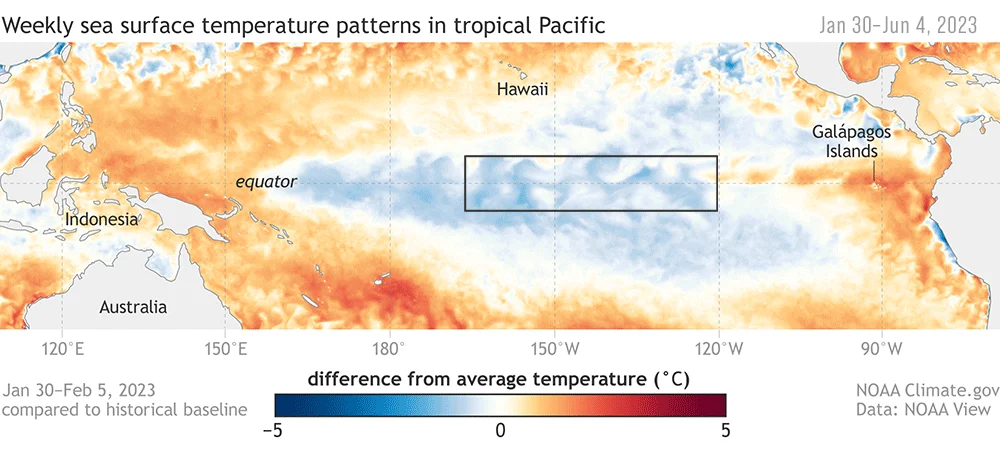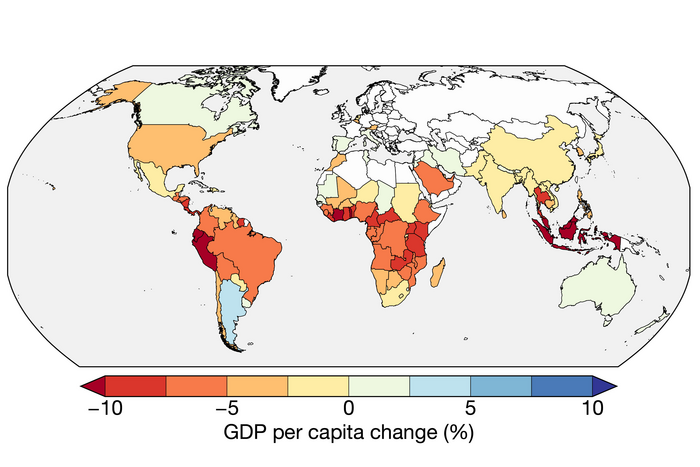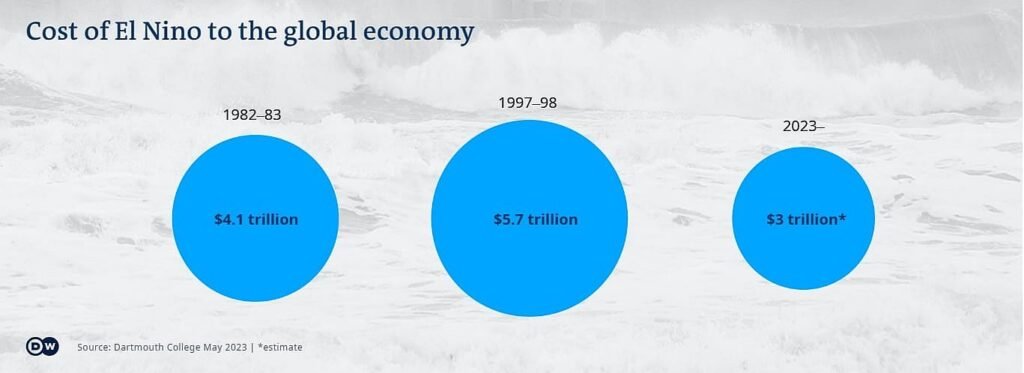During its occurrence, El Niño, a warm ocean current extending from South America to Asia, instigates profound alterations in climate patterns, leading to catastrophic inundations, decimating droughts that ravage crops, dwindling fish stocks, and a surge in tropical ailments.

According to a groundbreaking study conducted by researchers from Dartmouth College, the imminent resurgence of El Niño holds dire consequences for our global economy. These erudite researchers have discovered that the fiscal ramifications of this recurrent climate phenomenon can endure for numerous years, resulting in a staggering loss of trillions of dollars in income worldwide.
This investigation is among the first to evaluate the long-term costs of El Niño, and it projects losses that far exceed those estimated by previous research.
After dedicating two years to meticulously studying the worldwide economic trends in the years subsequent to the El Niño occurrences in 1982–83 and 1997–98, the diligent researchers have discovered an enduring manifestation of decelerated economic progress over five years later.

Astonishingly, El Niño events inflicted a staggering financial burden of $4.1 trillion and $5.7 trillion on the global economy respectively, predominantly affecting the most impoverished nations located in the tropical regions.
The esteemed researchers project a staggering global economic loss of $84 trillion throughout the 21st century, as the formidable force of climate change may further intensify the occurrence and impact of this weather phenomena. This pessimistic forecast persists regardless of the earnest commitments made by world leaders to curtail carbon emissions.

In fact, it is estimated that the impending El Niño anticipated for 2023 alone could impede the progress of the global economy by a substantial sum of up to $3 trillion, significantly affecting our trajectory until 2029.
Reference- U.S. National Science Foundation, Dartmouth University, National Geographic, Discovery Channel, Journal Science, Darthmouth College Research Report, Reuters






